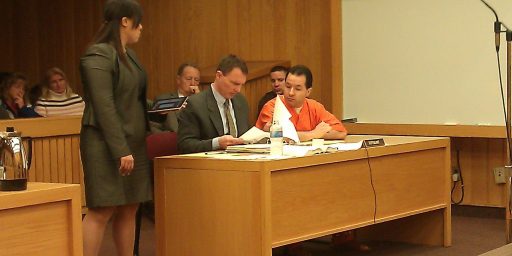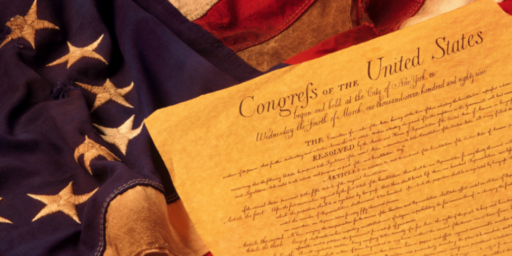“The Forfeiture Racket”
If you only read one article today. Hell, if you only read one article this week or even this month, make it Radley Balko’s report on abusive asset forfeiture laws. It is both excellent and infuriating.
I believe I’ve mentioned before that Radley is America’s greatest living journalist. This article is one of the many reasons why.






I like Radley too, but I don’t know if he is the bets journalist in the world. Kind of have to define the criteria for that beyond he writes about subjects near and dear to you. I’d tend to look more towards journalists like Michael Yon or maybe Michael Totten right now that are risking life and limb to get stories, but who knows?
RE: Hottest decade evah
Thoughts?
My thought is that government entities should not violate the law. It’s bad science not to release raw data but a refusal to release data is not a repudiation of a conclusion.
Here’s the thing, though. You will find this type of thing everywhere. Pharmaceutical companies don’t release raw data for their studies they send to the FDA to prove that their drugs are “safe.” Monsanto won’t release the raw safety data for their genetically modified crops. If you’ve ever worked in the scientific field, you’ll know that sometimes a university will ask their researchers not to release data until a patent application is filed. It goes on and on.
This is an endemic problem in all the sciences, not something unique to climatology. It’s even a bigger problem when government is involved. Lots of government entities violate the FOIA when it comes to releasing information that ought to be released.
Agree with you completely thanks for responding 🙂
Re: The Forfeiture Racket
Most property and business owners that defend their assets against Government Civil Forfeiture claim an “innocent owner defense.†This defense can become a criminal prosecution trap for both guilty and innocent property owners. Any fresh denial to the government when questioned about committing a crime “even when you did not do it†can “involuntarily waive†your right to assert in your defense—the “Criminal Statute of Limitations†has passed for prosecution. Any fresh denial of guild, even 30 years after a crime was committed may allow Government prosecutors to use old and new evidence, including information discovered during a Civil Asset Forfeiture Proceeding to launch a criminal prosecution. For that reason many innocent property and business owners are reluctant to defend their property and businesses from Government Civil Asset Forfeiture. Re: waiving Criminal Statute of Limitations: see USC18, Sec.1001, James Brogan V. United States. N0.96-1579.
There are over 200 U.S. laws and violations mentioned in the Civil Asset Forfeiture Reform Act of 2000 and the Patriot Act that can subject property to civil asset forfeiture. Under federal civil forfeiture laws, a person or business need not be charged with a crime for government to forfeit their property. In the U.S. private security companies and their operatives work so closely with law enforcement to forfeit property—providing intelligence information, they appear to merge with police.
Under the USA Patriot Act, witnesses can be kept hidden while being paid part of the assets they cause to be forfeited. The Patriot Act specifically mentions using Title 18USC asset forfeiture laws: those laws include a provision in Rep. Henry Hyde’s 2000 bill HR 1658—for “retroactive civil asset forfeiture†of “assets already subject to government forfeitureâ€, meaning “property already tainted by crime” provided “the property†was already part of or “later connected†to a criminal investigation in progress” when HR.1658 passed. That can apply to more than two hundred federal laws and violations.
Just recently Obama signed Executive Order EO 12425 that included authorizing INTERPOL to act within the United States without being subject to 4th Amendment Search and Seizure.” Obama’s executive order will allow U.S. police to circumvent the Fourth Amendment by working with INTERPOL in criminal and Civil Asset Forfeiture investigations. After the Patriot Act passed, several European Countries entered into Asset Forfeiture Sharing Agreements with the U.S. It is problematic INTERPOL working with U.S. law enforcement and private government contractors will want access to telecom/NSA and other government wiretaps perhaps illegal, to secure evidence to arrest Americans and or civilly forfeit their homes, inheritances, intellectual property and businesses under Title 18USC and other laws. Thanks to Obama, U.S. Police can now use INTERPOL to circumvent the Fourth Amendment to share in assets seized from Americans.